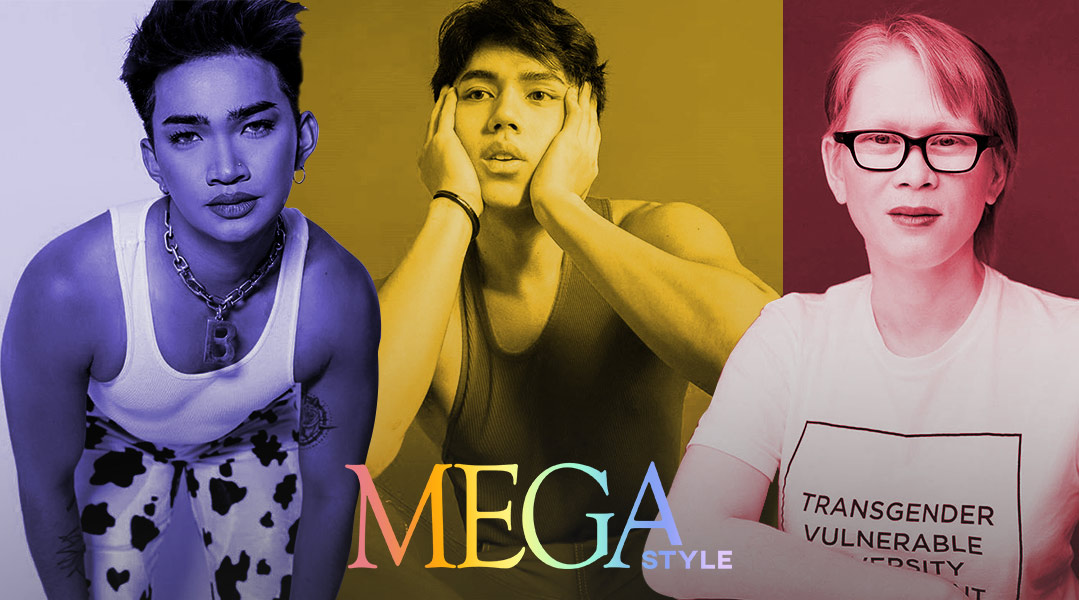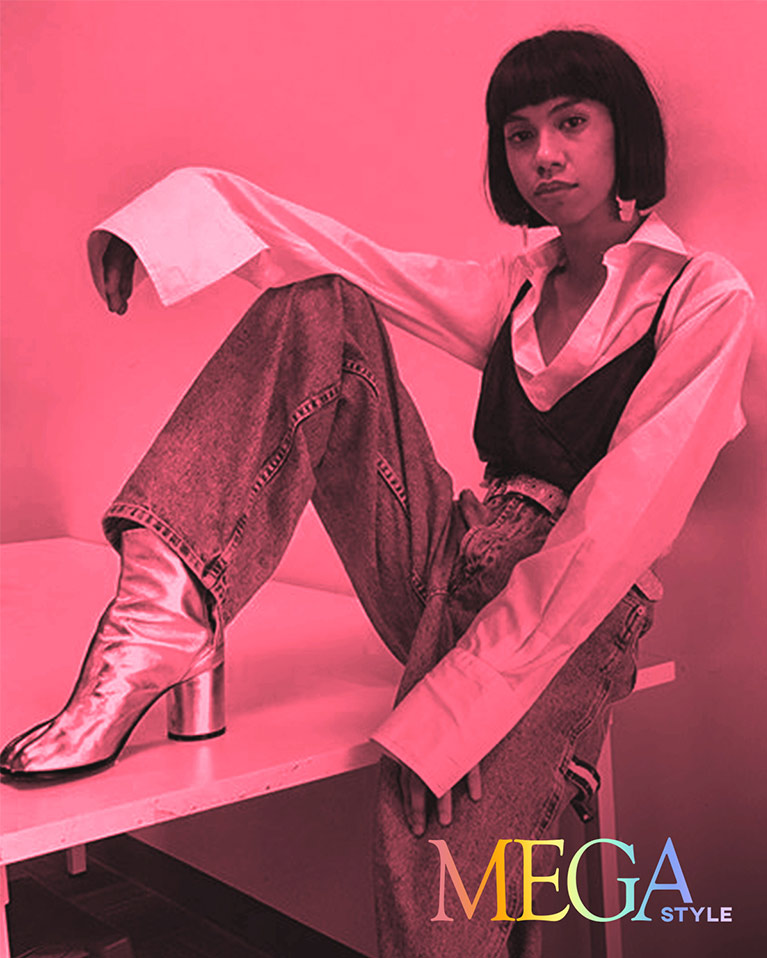In the culmination of pride month, we are seeking out the stories from LGBTQIA+ forces to be reckoned with, essaying their truths that are of influence and impact. These are your stories, and this time we are telling them as it should be.
“The first duty of love is to listen,” and so speaks the wizened Dalai Lama. “When you talk, you are only repeating what you already know. But if you listen, you may learn something new.” This couldn’t be a more appropriate nugget of wisdom to pop up on our social media timeline, especially when the words love, unity, and positivity are thrown around so carelessly in the guise of solidarity in pride. It is often so diluted and deluded that one can’t help but approach these with a fair amount of caution, what with pride being magnified to a blinding scale. In fact, there exists a shred of doubt when such attempts at kinship are made, more so because we live in a time when assimilation and passability has been a gauge for acceptance, and our liberties challenged by oppression.
Besides, it is increasingly difficult to fully celebrate the movement of pride, as it has been made no secret where the LGBTQIA+ community and it’s long fought for rights stands in the hierarchy of priorities of the status quo. Even as it continues to be challenged, the elusive equilibrium proves to move further along the long-winding journey we have been treading since over 50 years ago.
But this isn’t a story of sadness, because despite of the oppression, we as a vibrant and robust community still find ways and reasons to unfurl the rainbow flag and wave it high for everyone to take notice. It is a bare minimum attempt to consolidate or to even as much as think of it as a Coachella-type of celebration, which it isn’t. In its heart, it is a resistance; a defiance of the unjust. Now more than ever, we are going back to its roots, giving the space to queer forces who not only matter, but also those who are truly making significant strides in the reclaiming of our narratives. Essaying our realities in the written, oral, and visual sense, we are adding more depth, voice, and color to stories that are rightfully ours.
In a world enlightened and empowered, we will talk, eventually. But in the meantime, we are listening to your stories and giving them a space to take wind and soar. This is where you find yourself, tucked in these tales of truth that are just as yours as it is theirs. It is your story, too. And this time, we are telling them the way it should be.
Happy pride.
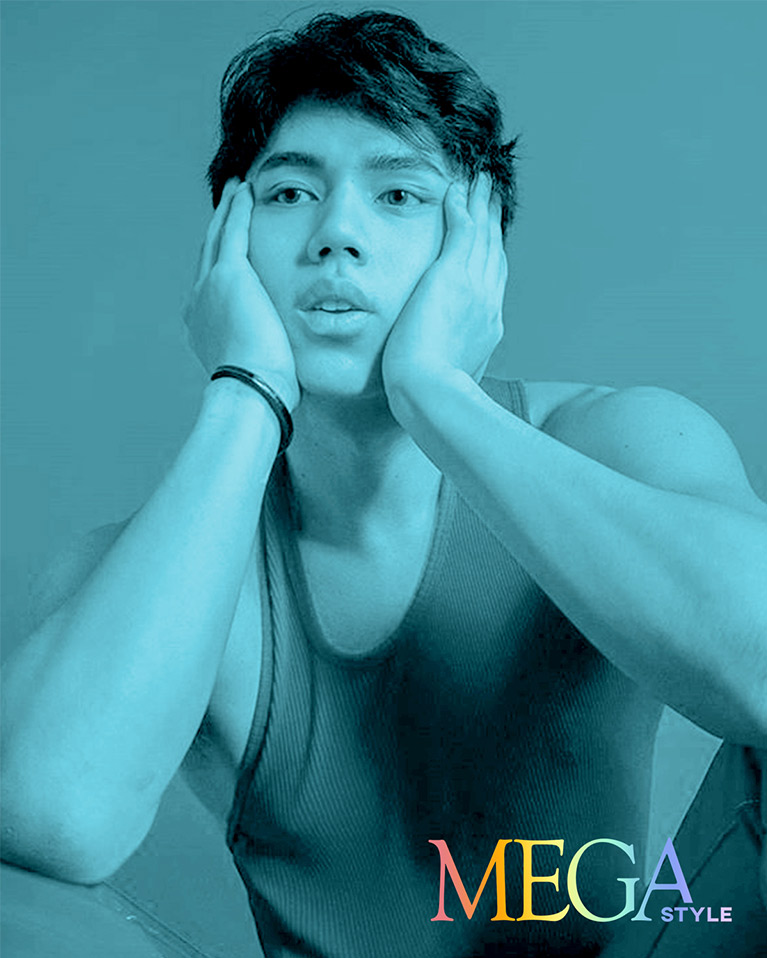
BJ Pascual
BJ Pascual has been a household name in the business of photography in the Philippines. In fact, you’ve probably heard his name numerous times from celebrities you follow. He’s behind all the ever-stunning portraits you’d usually see going viral on the web. And that’s because BJ has this great eye for making anything into a wonderful piece of art.
In MEGA, we’ve already seen BJ at work. While he is photographing our cover stars, you’ll notice how dedicated he is with his work. It’s quite evident that he has this burning passion when it comes to photography. And the results of his work from one project after another is just impeccably gorgeous. A perfect example would none other be the iconic MEGA cover for our 23rd anniversary.
But apart from seeing how he is with photography, there’s another important matter that he’s also dedicated and passionate about: LGBTQI+ representation. When BJ started getting attention from his work, you’ll notice how he has always made it a point to represent the community.
Recently, the celebrity-photographer shared his journey on how he started to realize the true importance of representation. “When I first shared my coming out story…I was surprised how many people messaged me saying they could relate to how I came out,” he said. “I didn’t know how important it is to just share your experience, even just that simple.”
So, when brands started to tap him, such as his recent collaboration with Calvin Klein Underwear, he made sure to hoist the rainbow flag with great honor. “As far as messaging [of the campaign] goes, I wanted to do a play on the masc/femme dichotomy,” he explained. “Society in general, and even in the gay community, put so much of a premium on being masc, and that being femme makes you less than.”
BJ proves that it’s really high time to keep on pushing the boundaries of the social construct that restricts others to accept themselves wholeheartedly. And that’s why it’s really critical that there is enough representation for the LGBTQIA+ community, because “seeing a version of ourselves in media—no matter how big or small—is a reminder that we are not alone, we exist, we are valid, and just like everyone else, our stories are worth sharing.” —Daniel Reyes
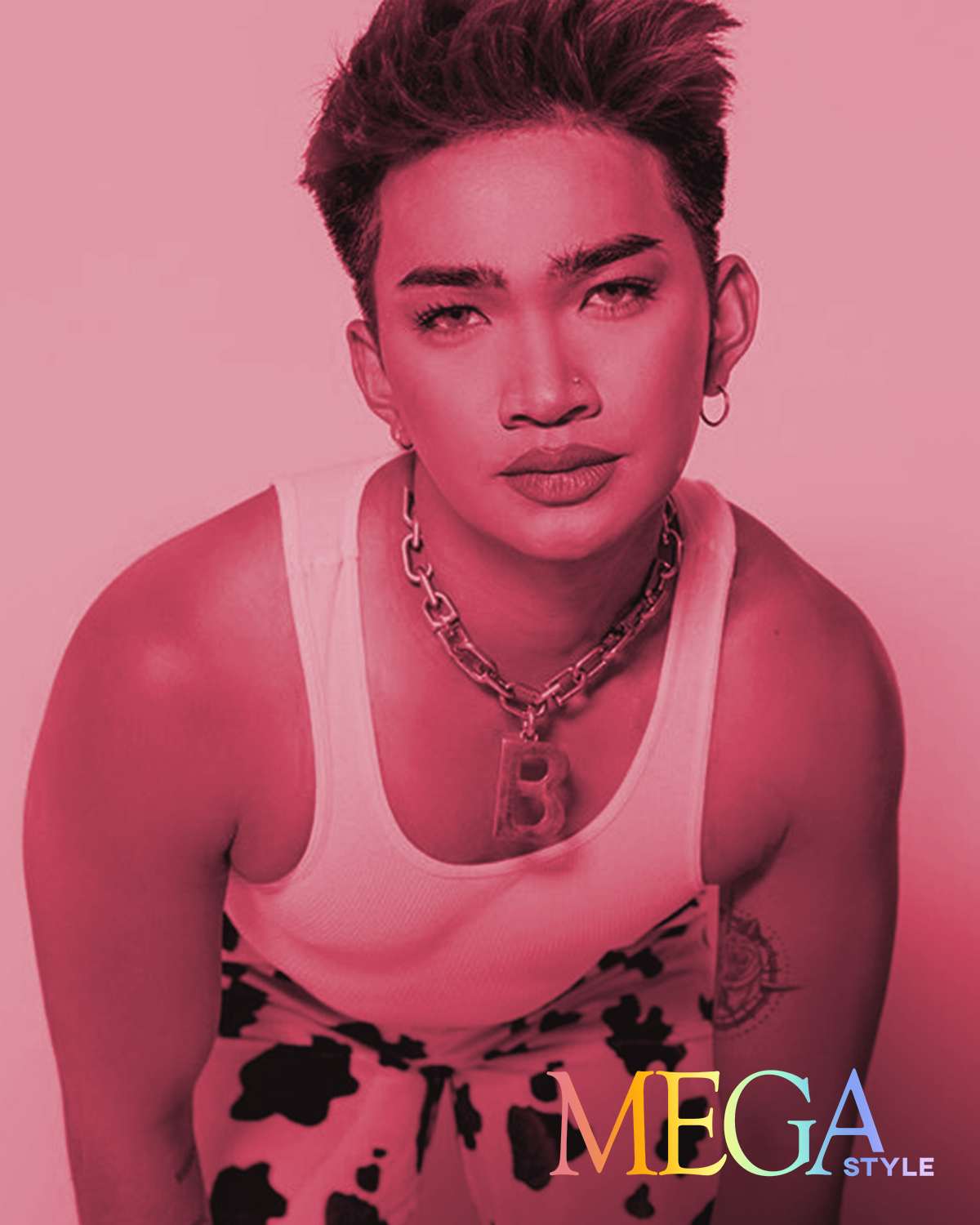
Bretman Rock
YouTube sensation Bretman Rock is the influencer we all need to stan (in case you haven’t yet!). Regardless if he’s thousands of miles away from the Philippines, the Hawaii-based YouTuber still stays true to his Filipino roots. He never let go of his heritage as he simply understood that it’s something to be proud of—that it is an honor to say he’s Pinoy.
In fact, you’ll notice how he makes it a point to incorporate Filipino cultural references in his vlogs. From making the intros like a teleserye, visiting random stranger’s houses to Christmas carol, cosplaying Darna (his favorite superhero), to even cursing in Tagalog (which is admittedly funny), Bretman has contributed so much in making Filipino pop-culture seen in the international stage.
So, as we celebrate Pride month this June, we want to put the spotlight on this scientist on the mothahf*ckin side and the coconut water connoisseur as he has done so much to help people of color, immigrants, and of course, the LGBTQIA+ community.
Bretman is known for having no-holds-barred when fighting for minorities such as immigrant kids. The social media star addressed bullies who have been making fun of immigrants who aren’t fluent in English.
“Growing up I was always ashamed of speaking my own native language because I was scared of what my friend would think,” he admitted. But as he grew older, he realized there’s a much greater advantage of speaking more than one language. “English is the easiest language to learn,” Bretman boasts. “The ******* that made fun of immigrant kids, or anyone that does not speak English, try learning our language… because it’s not easy. And that’s on tuldok!”
In addition to that, the social media star also had the guts to call out his fellow influencers who are not using their voices enough to address police brutality. “Some people have been too quiet lately, and not using their voice. Yes, retweeting things is cute and all, but, that is not using your voice. That is not using your influence,” he said.
Bretman knows that it really wasn’t the time to stay silent and just wait for it to subside, because this big issue of racism has to end. Fellow allies must start to speak out, and if you have a platform, then use your influence. “People are not talking about it for their own self-benefit,” he added. “I want more people to listen. I want more people to be aware of what’s really going on in the political climate.” And frankly speaking, it’s exactly what people need to hear.
So, amongst all the influencers in the digital sphere, Bretman Rock is the worthy influencer to follow. He has set the bar of what it truly takes to be an influencer in the 21st century. He recognizes his privilege, understands the true essence of having a big platform, and most importantly, allows himself to be a voice of the unheard and a figure of the unseen. —Daniel Reyes
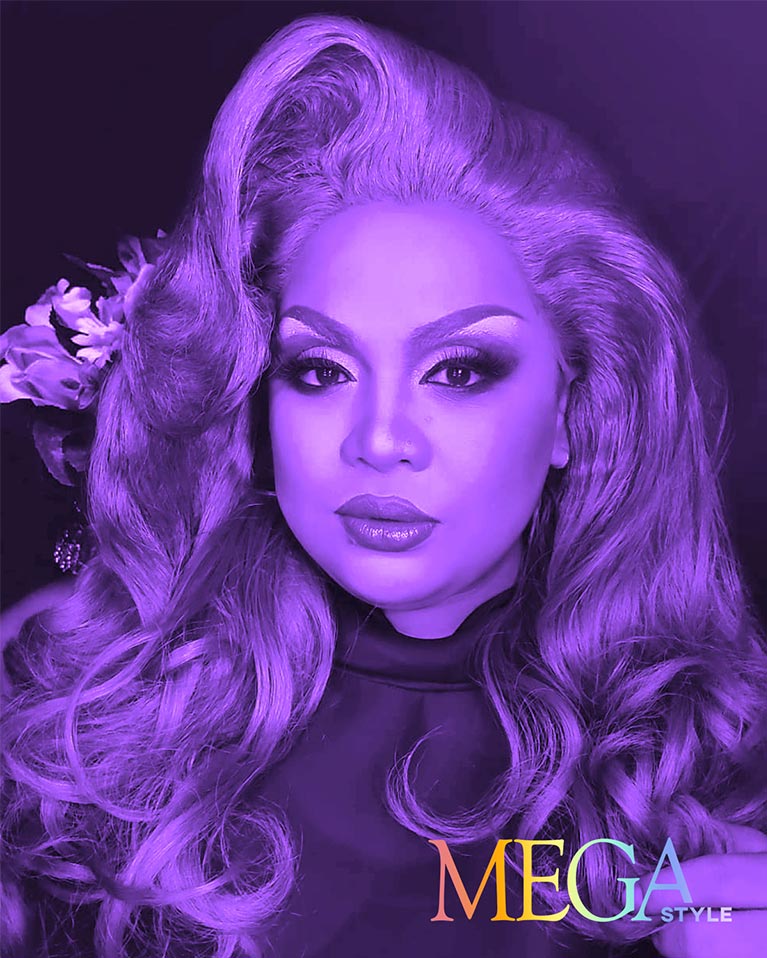
Dee Dee Marie Holliday and Eva Le Queen
It is very easy to be overwhelmed by the ostentatious display of the big, the bold, and the brave that make up the larger-than-life persona of a drag queen. More than just the wig glued and pinned down to the scalp, a stack of feather-like lashes weighing down on the eyelids, and towering heels digging promising a muscular hangover that is without mincing too much words, a bitch, it is this unique serve of charisma that draws you in to take a closer look, drawing your eyes on everything else—the twice and sometimes thrice cinched waist, the layers of cosmetics spackled on the face, and the heaps of sequin, glitter, and rhinestone that glimmer and glint in the underbelly of the night club. But all that illusion distills itself as a matter of fact when the warmth of the spotlight washes over their full form and then suddenly, they aren’t just entertainers you furiously snap your fingers and scream, “Yassss, queen!” In a blink of an eye, they become vessels of a message so searing, so moving, and so important that it digs itself deep into your soul, making you forget that they are just mouthing words to a track blaring from the ominous sound system.
“Drag encourages anyone who does it to release their inner beings. Yes, drag is fun and entertaining. Some of us are glamorous clowns, if you may, but one thing I’m sure of is that drag teaches me to be myself and helps me to express myself creatively in ways that my regular boy persona wouldn’t,” explains Dee Dee Marie Holliday, a queen with a decade’s worth of experience to her name, subverting the queer night life with all the chutzpah and panache that she could muster for her alter ego. “A part of my identity, drag is my craft, my art, and my passion, as it is also most importantly, transformative. Through it, my perception of things are somehow augmented.” This shift allows her to transcend the typical, proverbially eating the stage in performances that is everything from a well-choreographed Britney Spears number, a soul-stirring rendition of This Is Me, to a parody of Sandra Bullock’s Bird Box set to Nelly Furtado’s I’m Like A Bird. “Me as a queen has bigger balls than me as a man,” she says with pride, which is saying a lot, considering they are nestled within a formidable tuck.
All kidding aside, this fundamentally parlays itself well to drag being political, as it was borne to be. “Drag is and will always be political. That’s not negotiable,” she says, reminding us of herstory where the first people to throw the bricks at Stonewall in New York city were transgender drag queens, Marsha and Sylvia, who we have to thank for our pride marches and celebrations today. “My drag and my politics are part of what I’m known for. It is a responsibility. I don’t do it just for clout.” The same holds true for Eva Le Queen, a drag performer and proponent of Drag Playhouse PH who didn’t set out to be a political queen, but ended up owning the association, especially seeing how it has an effect on the psyche of club patrons out for a good time and LGBTQIA+ kids who worship the ground they walk on. “When I am on stage and I have the attention of so many people, it would be a waste if I am not able to use it for something that matters. Not everybody gets that chance. Whether it is to provoke ideologies, challenge norms, or simply uplift someone’s mood, it is important for me to send a message across through my drag,” she states. “Drag is an art. A living art like music, literature or even performance arts. it is deeply rooted to the artist’s emotions and consciousness —their feelings, memories, personality, pain and convictions in life. With something so personal, it does not go far off that it could also be used to express one’s stand on political issues that affect us. Drag or males dressing up as girls (D.R.A.G) is already a political statement in itself as it embodies challenging the norms in a cis-gender dominated world.”
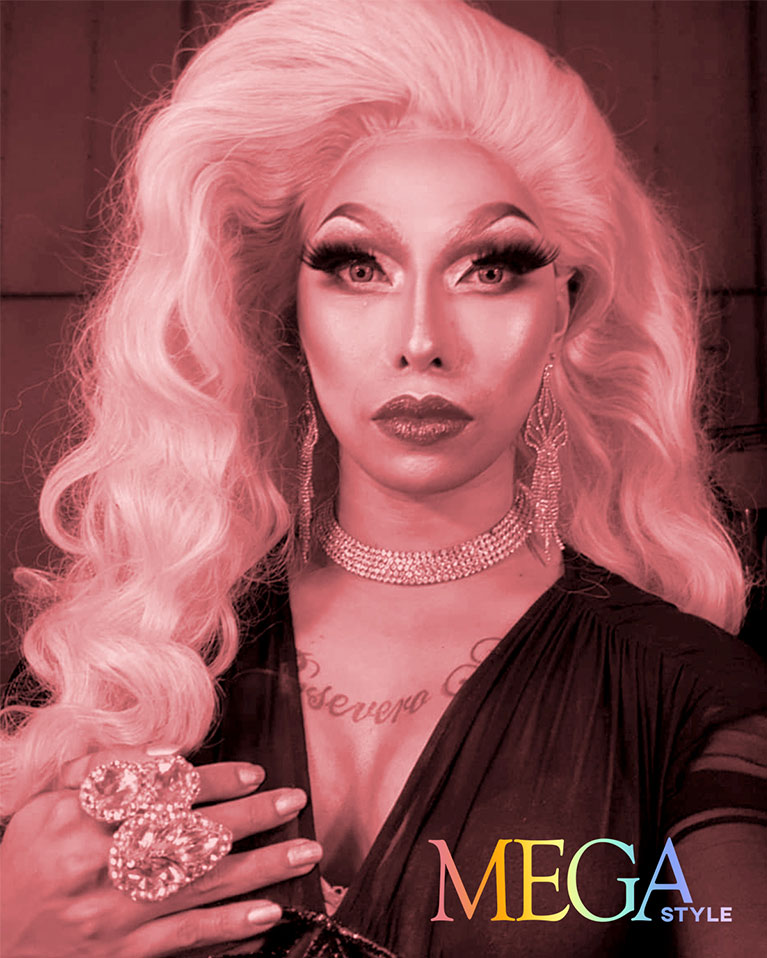
“In this day and age, I’m glad to see that drag queens have become the face of most pride events. We do not only provide entertainment. We even do the activism and when needed, we get our hands dirty, too,” asserts Dee Dee Marie Holliday. “We’re no longer shunned to the corner on that D-list table. We are at the forefront of the LGBTQIA+ fight for equality.” Eva Le Queen concurs, arguing how others turn a blind eye on the injustices that we see each and everyday. “Drag is more than just a form of entertainment or even a political statement. Drag is very personal regardless of how rough or polished it look, or weird and odd some may seem. It is an expression of a human being and that needs to be respected. We may not have the same avenues where drag artists were usually seen. But we have online events and platforms to showcase more drag and queer artists all over the country. I produce events and parties on line for more enthusiasts and artists to feel comfortable in expressing themselves. And hopefully this will create a culture of respect and deeper appreciation to the art of drag,” she explains, recounting her own journey from performer to artist with deeper and more insightful view of what the art of drag truly is. “I have come to realize that beyond the make up, costumes and glamour, the platform that’s given to us can serve a higher purpose.”
This precisely is where the beauty of drag lies. For all its proclivity for gargantuan glamour, it is essentially a middle finger and clenched fist to a society that has long persisted on shunning people like us for being different. In a space where the weird, the odd, and the unique are celebrated, we are truly able to communicate a message that is so intrinsic to us, which we should put on pedestal even more. “I always say, drag queens are the alpha males of the LGBTQIA+ community. On an individual level, drag and queer artists have faced discrimination and prejudice from the society, their families, and even within our very own community. But the choice to embrace ourselves and live unapologetically every single day is an activism in itself. Other than using our platform to advocate bigger causes, our mere survival day by day, bringing the colors and smiles amidst the hate in this world is the very essence of the resistance,” says Eva Le Queen further enlightening us on the intricacies of drag. “We survive and we exist. We matter and we will keep pushing forward starting with the battles we have within ourselves.” The reality is, the powers of the status quo are still against us, and we must get it across to them that who we are and what we do isn’t any different from who they are—we can just walk in heels and dress better than they ever could dream of.
“I wish to see more of my drag sisters speak up about the current political climate and injustice more than the amount of glitter, rhinestones, and sequins that they can put on their faces and outfits,” shares Dee Dee Marie Holliday, matriarch of the most sought after House of Holliday. “Also, with the pandemic going on, drag has gone digital, with queens performing online and getting tips through cash apps. I hope that my sister queens will not forget to bring the politics and activism of drag in the online platform, because now more than ever, people are watching and listening.”
And that’s the whole tea and nothing but the tea. —Angelo Ramirez de Cartagena
(This article was updated as the previous version featured erroneous reporting. We sincerely apologize to the parties involved for this oversight.—Ed)
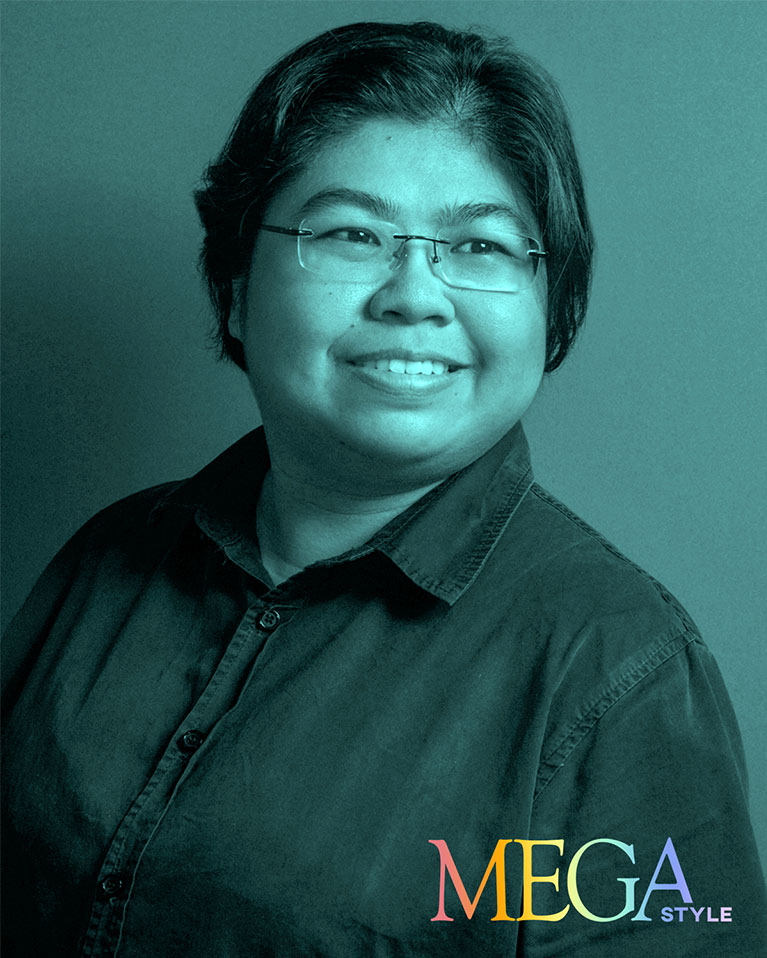
Atty. Jazz Tamayo
In the span of this correspondence, a jolt of shock was sent through the spines of social media when timelines were flooded with reports of a peaceful and socially distanced protest in the name of pride was dispersed in violent force and arrogant contempt, bulldozing through many violations of human rights in the process. With sentiments soaring, emotions erupting, and feelings flared, it would have been understandable and totally permissible if Atty. Jazz Tamayo, Executive Director of Rainbow Rights Philippines, a non-profit, non-governmental organization that focuses on legal literacy and empowerment with respect to SOGIE-based laws and policies, would defer our communication, being as that there were much more pressing matters at hand and lives on the line. “There are these arrests today in Manila and I might be called to assist with other lawyers, but I’ll do my best tomorrow,” she wrote in our email exchange.
While we were all but ready to concede to circumstance that takes obvious precedence, a commitment was assured, which spoke volumes of a work ethic that is truly admirable. Perhaps it is the discipline of law, the profession she practices, but it can also be largely attributed to the calling of the rainbow-draped community she calls a family. “Pride is many things to me. It is a place where diversity is celebrated, where love wins over hate, where a sense of belonging is not about blood or any institutional connection, it is simply a home for a huge family that has chosen to love and accept each other for no other reason but that,” she expounds. “But even more so, it is in its heart a protest. A protest against injustice and inequality in all its forms, and it goes beyond just LGBTQIA+ issues. This needs to be reiterated. It recognizes for example, that a person of diverse SOGIE can be struggling with discrimination on the basis of their sexual orientation and be at the same time victimized economically by discrimination against persons with disability or due to being a woman amongst the fisherfolk, for example. It isn’t pride if it overlooks other vulnerable groups’ struggle. It cannot cry out against discrimination, but turn a blind eye on the plight of others.”
However, as self actualized as her convictions are, it wasn’t always the case for Atty. Jazz Tamayo, who admits that her awareness and identity was shaped later on in her life as opposed to a more impressionable one that many of us have in common. “Advocacy and activism were likewise far from my mind, and that was because of my privilege. I was at that time never been discriminated against, at least to my knowledge or to my face (I would find out later that I actually was*) for my SOGIE, the struggle and experiences of the community was out of my radar and like any ignorant and insensitive person of privilege I never thought about it,” she recounts. “It was only after the bar that I started to be exposed to all the LGBTQIA+ issues and concerns. That was when I realized that 1.) The knowledge I’ve gained in law school could be of great use to the community, 2.) That I simply can no longer operate in the position of privilege while other members of the community bear the brunt of discrimination and prejudice, and 3.) That equality is a promise that is only fulfilled once everyone is truly equal, and so while the gains of the advocacy might not affect me personally, it doesn’t erase the fact that it will mean so much more to others, and to advocate for that is the ONLY right thing to do. Ergo, internal change wasn’t enough, I had to do something, too.”
This internal change has since manifested itself in the valiant work that she does together with the rest of Rainbow Rights Philippines. While it is admittedly a steep mountain to climb, strides are being made to be able to surmount the greater challenge of ensuring that substantive equality will exist in law. “Doing the work we do for pushing gender responsive pieces of legislation, including SOGIE, of course, in educating the community about their legal rights, and in educating institutions about the law and issues, the main struggle is really shattering the stereotypes and long held biases against the community,” she details. “Our presence and absence in the law, for example, are always rooted from these unfounded beliefs and thinking about who were are, what we do, and what we are about. A cursory read of when we are in the law shows you that whenever we are mentioned, the provisions mostly paint us in a bad light, as a ground for annulment, for legal separation among others, and yet we are never remembered in terms of giving or protection of rights (at least not before the Safe Spaces Act that now recognizes harassment of persons of diverse SOGIE). These mostly root from myths about us, that we CHOOSE being LGBTQIA+ and so we deserve to live with this choice and not have rights, that we are sexual deviants, promiscuous, and are criminally inclined—all these are but a few misconceptions that are actually behind the languishing of the SOGIE/ADB for now two decades if you really think about it.”
With this as her driving force, the stamina and endurance for the long-haul movement is well in place, advocacy and activism is exercised to its optimal function, making sure that the community is represented in the best way possible. “When I do my lectures with lawyers for example, I find that starting off with stereotypes and showing them how ridiculous and unfounded they are in reality makes many of them pause. I usually start to feel the energy in the room shift and while it might not happen to the entirety of the audience, I start to see openness begin with some of them. Same with the legislators actually, you can tell the difference between those who have started the process of educating themselves on the terms, the wrongness of stereotypes, on the experiences of the community from those who haven’t and if only more of them are the former I think the law would have passed already,” she says. “It is much more fulfilling and rewarding to know when the change you make gives people recognition and validation instead of that pain and discomfort.”
The journey is far and long-winding, but Atty. Jazz Tamayo is steadfast in the promise to balance the inequality that permeates to the core of society. In the end, though lofty as it may seem, she hopes that the community to be able to see themselves as catalysts and also role models. “Without forgetting about its struggles and challenges, I dream that [the community] also starts to embrace its good narrative and amplify those in society. I wish for the community to have its back, for us to support each other and not draw lines within. All those individual letters—LGBTQIA+ and others that may come, are valid and equal with each other and we shouldn’t forget that,” she reinforces. “In the long long term, I wish for a time where a person’s SOGIE will cease to matter. It shall no longer spell what you have or have not access to. A society that is so equal that these differences on SOGIE will simply become immaterial.”
There is a lot to do, yes, but with people like Atty. Jazz Tamayo putting in the work for and with the community, who knows, the seemingly impossible might just be possible in our lifetimes. —Angelo Ramirez de Cartagena
(*A hearsay, but I was told by a teacher friend that a head of a department wouldn’t want to consider me to teach in the school because I am a lesbian and that for this person, lesbians “are not controllable.” As if being controllable is a good quality for teachers. I didn’t exactly know if I was to feel complimented or insulted.)
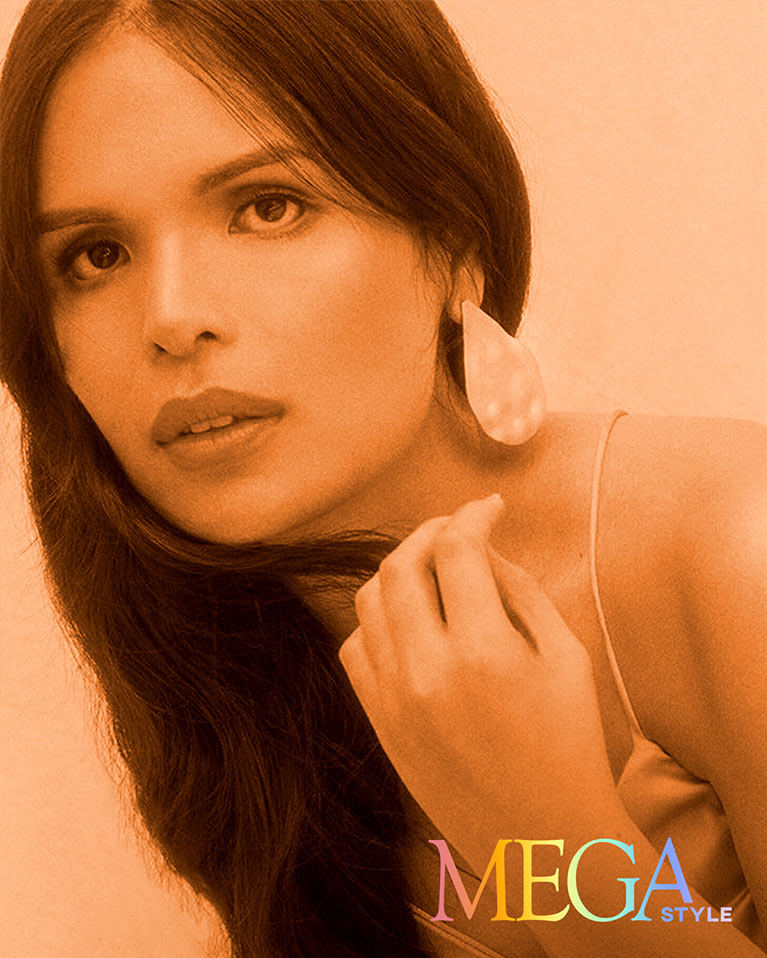
Janlee Dungca and Mela Habijan
As mundane as it may seem to be, especially in these days when our technological appendages are constantly buzzing with updates, notifications, and truncated messages, there isn’t anything quite beautiful than a conversation that is profound in its simplicity, cutting through the current of consciousness with an indelible imprint of ideas, information, and inspiration. It is no coincidence either that we have been having more of those as of late, both entertaining and enlightening in a pandemic-challenged turn of our history. More often than not, it starts off as ordinary as possible, like a message typed in the wrong window or in this case, a case of the peanut butter. And then before you know it, you are navigating activism and the queer reality in the Philippines, treading through the transgender experience, and eventually making it to a clearing of clarity in communication for the LGBTQIA+ movement. But we are getting ahead of the story.
“People were asking me if I wanted to share my story, and then I thought, why should I be selfish about it?” begins Janlee Dungca, PR Director of a visibly inclusive communications agency, as well as a gender rights and HIV/AIDS awareness advocate, when recounting her genesis from transitioning to advocacy and activism. “It was never my intention to be at the forefront, but I somehow found myself here and I wanted to make it matter.” Meanwhile, for Mela Habijan, an actress, host, educator, and LGBTQIA+ advocate, activism started as a desire to reclaim her space, which was held back so long by fear. “’Yun ‘yung nag-hinder sa akin why I didn’t transition,” she says. “I wanted to share that story, that the journey to my womanhood, though it may have been long, is valuable.”
On their own and accord, and often together, Janlee Dungca and Mela Habijan have slowly stepped into the spotlight, owning up to the platform that they have been given as rich wells of resource for the truth about the often waylaid trans narrative. “We’re already given the platform, so it is our responsibility to use it effectively. It is different when you are given a platform for good compared to using it for the self instead of for the benefit the community.” Janlee Dungca explains. “There are a lot of transgender women in the Philippines and the world, but not everyone is given the opportunity to educate others. For me, it’s how one responds to the call, because not everyone will take it responsibly.”
With the voice they have been given and in the stages they find themselves in, Janlee Dungca and Mela Habijan are always taking things a step further, striking discourse and dialogues not just within their social circles and echo chambers, but to a greater scope of the community as well. From talking about their advocacy work in many talks online and in academic parameters, they also have been furthering the discussion in corporate settings when they give SOGIE conferences or consciously leveraging their positions in media and entertainment to open the lines of communication about being trans most especially. “It is important to always elevate the conversation. Meron naman ng awareness ang public about the transgender experience, pero hindi enough na alam lang nila. Kelangan mapapalim pa yung pag-unawa nila,” offers Janlee. “Hindi nila nauunawan how it exists, and that motivates me to learn about it more and educate other people,” continues Mela Habijan who has also entrenched herself in the world of beauty pageants. “’May iba pang perspektibo sa buhay, and ‘yun ‘yung gusto naming ipamana sa ibang transgender women na sinasabi nila na wala silang boses or nahihiya silang magsalita or takot sila lumaban, kasi sa totoo lang, sa iba’t ibang transgender na nakilala ko, iba pa rin ang mindset nila.”
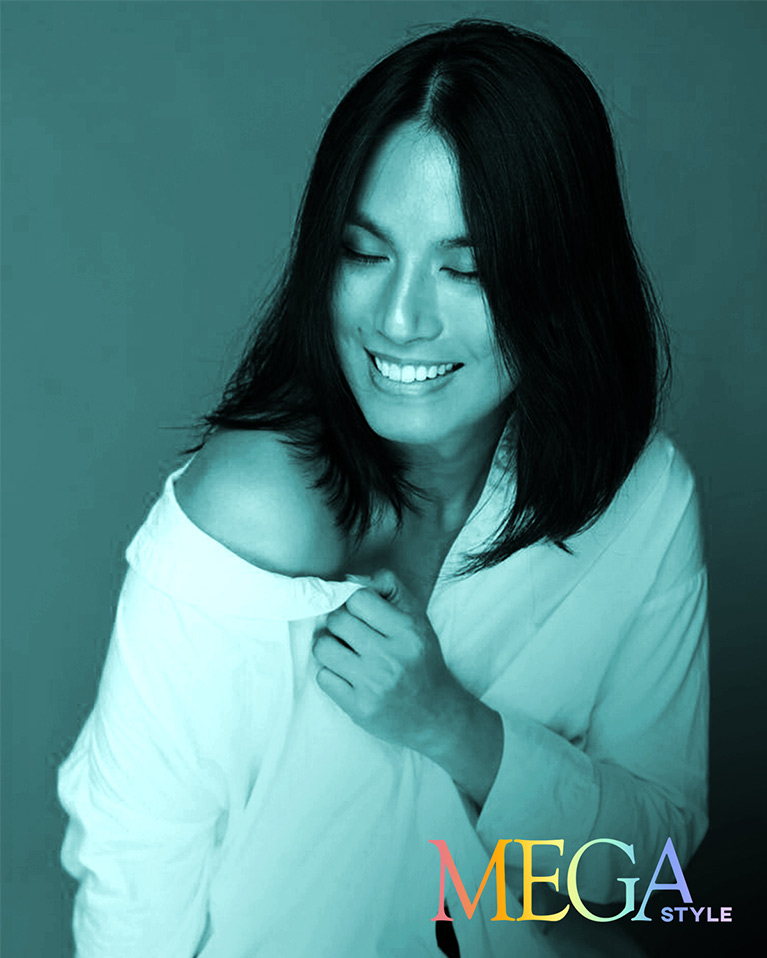
This has been a fiercely debated hot-button issue that has been subject to an almost microscopic examination over the past week, where it has been carelessly and aimlessly suggested that transwomen joining traditional beauty pageants is asking for too much equality. “Maraming ganun ang mindset and nakakalungkot ‘yun, but will we stop reaching out? No, because this isn’t just for us. It’s not a selfish battle, but a battle of the community. Siguro ang pinakamahirap lang talaga is kapag nakikita mo na hindi pa solid ang community, mas mahirap siyang laban. Kaya as much as possible, we even educate ourselves, because personally, I still don’t know a lot of things, and ngayong nabigyan ako ng boses, I will use that platform to communicate our struggles and battle,” details Mela. “Hindi pwedeng ayan ka na, tapos hanggang dito ka na lang. How will you make use of the platform given to you in maximizing and strengthening the community as well?”
The reason why Janlee Dungca and Mela Habijan have taken it upon themselves to serve as arbiters of the spectrum is primarily because when the fragmented and misinformed way of thinking by key figures in the community being put on the pedestal find its way into the status quo, it becomes a danger in itself, where the cracks eventually meet a breaking point, stalling progress long toiled for, and worse, regressing to an almost irrevocable state. “We have different backgrounds, we experience different things, we have different contexts, so ‘yung differences na ‘yun will entail different understandings and different manners of interacting with one another,” assures Mela, which Janlee agrees with and goes into delightful detail. “It all starts with the self. It’s very important to know yourself, know who you are, so that no matter who you meet or whatever people throw at you, you won’t be damaged. It’s important to have the willingness and the desire to learn. Mahirap yung sinara mo na yung sarili mo when in fact, you can learn from other people,” she says. “Kasi napaka masalimoot ng pinanggagalingan ng Pilipino. Lagi ko ngang sinasabi when I talk about SOGIE and gender equality, lahat ito nanggaling sa pananakop ng mga kastila at amerikano na inintroduce nila ang patriarchy sa pamamagitan ng religion at hindi tayo mulat diyan, lalo na yung normal na Pilipino. Kasi kung ano yung hinain sa kanila, yun na lang ang kakainin nila, hindi naman nila hihimayin. Kaya napakahalaga na alamin ‘yung pinagmulan natin not just with ourselves, but as a people, kasi nawala yung sarili nating pagkakakinlan.”
More than that, gender equality is also an ever-evolving educational process that isn’t bound by absolutism. “It’s years of continues deconstructing and unlearning, and learning of new things that isn’t bound by what we are used to,” says Janlee Dungca. “That’s what I want to teach people, that is admittedly so hard to do. But that’s just how it is, you have to be patient and kind, because whoever we meet is a potential ally in this fight—we just have to make them understand that.” However, one must be reminded that not everyone is as privileged to be made aware in the way that we have grown accustom to, Mela reminds us, which is why the rest of the community doesn’t fully understand why there is a problem and that it affects their existence fundamentally. “Mahalaga na iparamdam natin sa kanila bakit ka apektado sa pinaglalaban. Nagiging issue of the elite kasi siya,” she reasons. “Tayo lang din ang nag-uusap, wala namang pakialam yung mga nasa laylayan sa sinasabi natin. Paano natin ipapaintindi na nagti-trickle down ito sa kanila?”
This proposition is that it doesn’t just limit itself to the LGBTQIA+ consideration. Cutting across identities and realities, there exists a focus of introspection that makes you expand yourself as a human being. “It’s a matter of empowering them, because the way we were raised, it has always been, is this where it all ends? Am I really happy? Am I contented or am I just settling?” Janlee wonders, focusing her lens on the nuanced transgender existence. “We have to make them understand that they can be greater than where they currently stand, and hopefully, they realize this and are compelled to join the fight for equality.” For Mela Habijan, it is about opening herself up to listening to strangers, opening up to hearing out their stories. “Kasi iba pag nakipagkwentuhan ka sa kanila—meron at meron kang madi-discover. It’s very important for us to understand the context that they’re in. Instead of makinig lang sila sa’yo, pakinggan din natin sila: Ano ba ang gusto nila ipaglaban? Ano ‘yung mga struggles nila? Ano ‘yung mga bagay na hindi natin nakikita? Baka may gap na hindi nafi-fill up in the context of pride na sana we can bridge,” she muses.
Taking inclusion to kinder heights, she and Janlee Dungca are redefining what it means to be activists and advocates in this day and age. “Ang journey mo parati, hindi nag-e-end sa ilabas mo ang pagiging babae mo, dapat bigyan mo ng meaning ang pagiging babae mo,” Mela punctuates. “Totoo, at mahalaga ang concept of paying it forward na ibinabalik natin yung kabaitan na binigay sa atin,” offers Janlee. “Kaya ako as an advocate, ‘yun ‘yung basic principle ko sa kahit sino dahil babalik ‘yung kabaitan na ‘yun in another form.”
Before we knew it, our pocket of passionate discussion, a mostly serious one punctured only exhales of repartee, clocked in at a little under an hour, which drew a collective disbelief, especially since it didn’t feel like that span of time has passed with the breadth of humanity we have managed to unravel. There lies the beauty of conversation that hinges on listening and understanding. It will begin somewhere off-kilter, but eventually, it ends up where it needs to be, and in this case, it is a deeply insightful crack at humanity and identity. —Angelo Ramirez de Cartagena
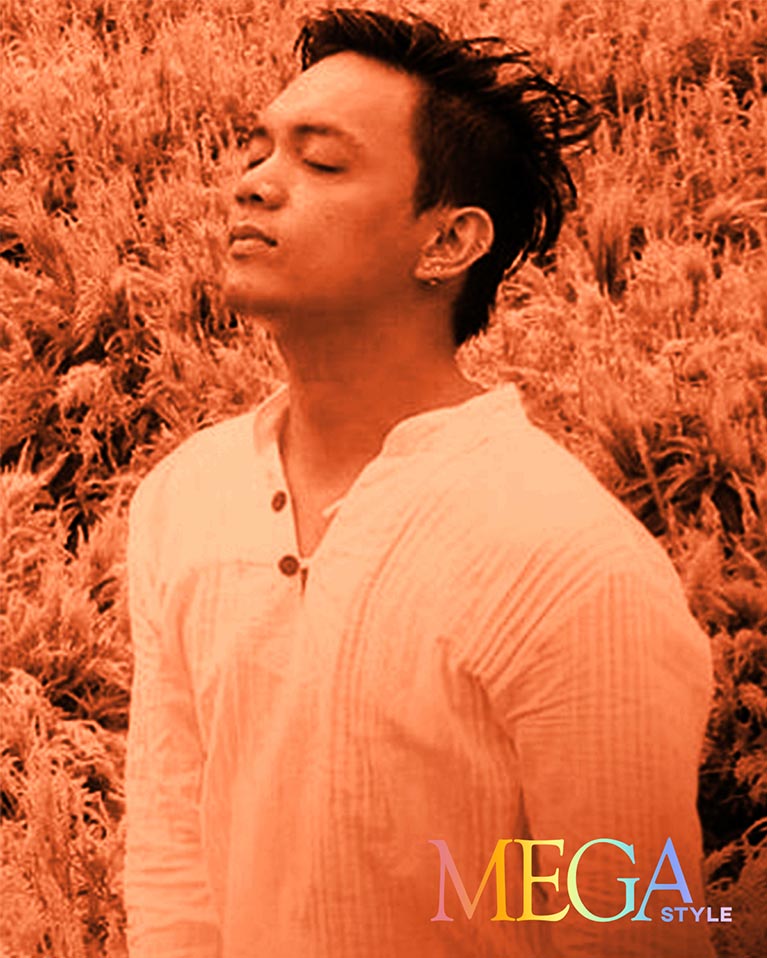
Juan Miguel Severo
Juan Miguel Severo has made a name for himself as a spoken word artist, a poet, a writer, an actor, and most of all, a proud advocate for the LGBTQIA+ community. An outspoken man with true grit and dedication for his works, he sets the standards for what it means to use his platform to raise awareness and actually walk the talk.
His most famous work being, Ang Huling Tula na Isusulat Ko Para Sa ‘Yo, a spoken word performance that went viral on YouTube way back 2015. His spoken word poetry is a true testament to how words can speak to someone’s soul. He says, “the best and also the most terrifying thing about performing spoken word is that one’s vulnerability is doubled. Vulnerability is important both for writing and acting, so imagine being the writer of the text you’re performing? You’re not letting someone else bare your truths, you do it yourself.”
Never one to shy out from the truth, just check his social media accounts and see how he actively uses his huge platform to say things most people are too afraid to hear.
“It’s cathartic, and the connection you make with your audience is immediate, beautiful, and sometimes, intense. But I’ve found that people are usually encouraged to speak their own truths after a spoken word show and to me, that’s huge. Because the moment that we’re able to speak the truth is the moment we begin to rise above it,” he says.
Now, Juan Miguel Severo is busy writing a queer rom-com series for Globe Studios. When asked why he wanted to write the show, he says, “aside from because queer creators can and we should be allowed to, I knew that the market is finally ripe and that Globe Studios is interested. It is high time for the next generation of queer kids to be told a story that would encourage them to own their narratives and embrace their identities. The story, I can say, is a more idealized version of events that happened to me and some of my friends during college. The question that propels it basically is: what if we were brave enough to pursue love back then despite what society thought about our gayness? Like I said in my pitch, it’s a love story I wish the world were kind enough to afford gay men when we were younger and a love story that younger gay boys deserve now.”
Throughout history, the depiction of the LGBTQ community in films has directly influenced how queer people are treated by society… and most of them are negative. It is rare to find films where gay characters aren’t brushed to the side as the ‘gay best friend’ or be over-sexualized for their preferences. In our country, homosexuality is still mostly insinuated through the use of stereotypes and innuendo. Juan Miguel Severo recognizes this. “To be an ally is to share one’s space and platform and voice for the stories of the LGBTQIA+ community. To be an ally means to ask questions coming from a place of love, a want to do good by the LGBTQIA+ community. And as a still-privileged member of the community—I say still-privileged for I am cisgender, generally masculine expressing, middle class, with a considerable social capital—my job is to amplify the voices of those marginalized within the margins and to use my privilege, platform, and craft to push for the fight for equality.”
There’s still a long way to go when it comes to fighting for the rights of the community, but if there’s anyone who sparks hope in us, it’s Juan Miguel Severo. —Elyse Ilagan
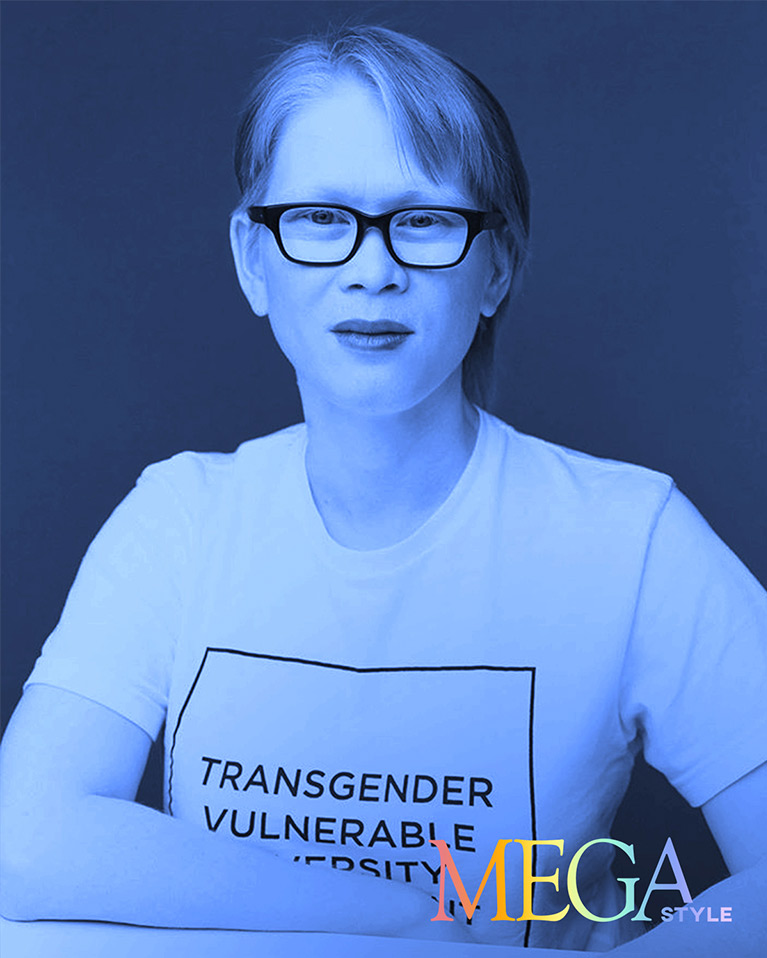
Meredith Talusan
“I’m nerdy, rebellious, and funny…sometimes,” reveals a sheepish Meredith Talusan in the Netflix and GLAAD First Time I Saw Me: Trans Voices series. Perched on the director’s chair in a mostly bare industrial space with gradient of pink and blue washing over the background, she leans in to the right, sinking to a settled position before continuing: “I’ve always kind of been an odd ball…When I first came to the States in high school, I watched a lot of Star Trek: The Next Generation. That’s where I learned a lot of my English from was Star Trek: The Next Generation. I really identified with Data, because you know Data is this robot who is trying to be human, and is fundamentally different from everyone around him. I very much identified with that. I have not seen characters that make me look at the screen and say, oh, like, this is me.”
Identity was always something Meredith Talusan has confronted and articulated in their prolific works as an award-winning journalist, editor, and author. Recognizing their gender-non binary self, she describes herself as an intersectional journalist, with a career that spans a published presence in The Guardian, The Atlantic, The Nation, Mic, Buzzfeed, Vice, and Wired, as well as being the founding executive editor of them., the first-ever platform made for the queer community by the queer community by Condé Nast. In a conversation with Catapult, the recipient of the 2017 GLAAD Media and Deadline Awards elucidates, “It means that I’m someone in the position of telling other people’s stories, when people like me don’t usually have that power; we’re usually the subjects of stories, but not storytellers. Or, if we’re lucky enough to get to.”
This is why she has taken it to be a responsibility to further cultivate a space where LGBTQIA+ stories are not only considered, but told the way it deserves to be. Taking charge with compelling expositions such as I Didn’t Know I Was A Boy, I Hid My Transition For Years. I Regret It Now, and Queer Culture In The Age Of Transgender Disruption, Meredith Talusan was able to reclaim a narrative that was often postured as traumatic. “The power of my voice to impact the world for trans people is one I’ve come to cherish, and that power would not exist if I weren’t out and proud to be trans. But I also know that much of my fuel comes from those years when I was able to take stock of my life without the world’s intrusion,” she writes in Along With Pain, The Joy Of Stealth. Further dissecting the journey and truth to being trans, the Filipino scribe reflects on her life in Fairest, the wildly praised enthralling eloquence that sought out “to look at the entirety of my life and understand how I moved through the world in this body over the years.”
“I grew up to be a woman, but first I grew up to be a man. An unapologetically feminine man. A man who was often mistaken for a woman. A man who bought clothes in women’s sections of department stores. But a man,” Meredith describes in I Didn’t Know I Was A Boy. “Discovering I was a boy so late in life, I saw nothing wrong in being a man who shopped in the women’s section, who wore lipstick when the mood struck, who imagined himself a woman in his fantasies. But I was also a man who could not wear a dress without being stared at, who could not grow my hair long without being seen as a drag queen, and who constantly had to hear himself referred to as himself, he with his hair and his clothes.” Here, we are given a distinct insight unique from the dysmorphic and caged stories that have become typical in trans representation. While these hold to be very true, especially in the process of self-actualization and identity, Meredith Talusan is giving us a glimpse of who she is in her own powerful and riveting words. In a published excerpt from Fairest, the memoir reads: “I came to understand that what I wanted was to be seen as my complete self—my gender, my race, my history—without being judged because of it.”
As powerful and enlightening as this is for Meredith, it also functions as a reflection for others who have gone or are living the same truth. While it is distinct to each soul, the kinship of this common thread enriches the tapestry of stories and humanity that is woven at each expressed account and history. And to be able to manifest it in written articulation that is both informative and captivating serves as a beacon of light in a world that continues to huddle by the shadows of unfamiliarity.
In an intimate conversation with Into, Meredith Talusan turns the focus on the youth, a segment of society that is truly staking a claim in the present and the all important future. “[The] advice I have for LGBTQIA+ youth is to know your own power. Know your own knowledge, own your own knowledge. I feel like we’re living in a world right now where young people know just as much, if not more than older people and I find myself constantly learning from people who are younger than me, and growing because of the fact that I hope that I’m the kind of person that has the capacity to learn from people who are younger than them and I know there are older people who have a hard time doing that,” they say. “I just love new ideas, new ways of thinking of things, and new ways of framing something that I thought I knew. Those are all amazing things that young people have really strived and fought for. Own your own knowledge.”
Meredith Talusan, on the other hand, is owning the narrative of her life, engaging and empowering an audience with an encompassing impact that permeates far more than imagined. Here, we have the self-confessed odd ball who is truthfully more present and aware of her being, writing her own stories, and of others as well, in a voice that the world needs to hear to better understand the human condition as honestly as possible. That isn’t so odd now is it? —Angelo Ramirez de Cartagena
Mimiyuuuh
Just the mere mention of Mimiyuuuh’s name will get anyone singing, “It’s your girl, Mimiyuuuh, oh yeah!” If that isn’t a clear indication of Mimiyuuuh’s rise to fame, just take a look at her subscriber and view count on YouTube that spurred within a year of continuous vlogging.
Mimiyuuuh embraces her femininity. She has this boisterous singsong voice that fans adore and her confidence radiates. “If you use your flaws as your strength, no one can use it against you,” she once said in one of her vlogs. “It really takes time to accept who you really are. It is a learning process kasi eh.”
She’s authentic and honest—never holding back from what she has to say, yet respectful in a way that she never tries to offend. Laughter ensues the minute she speaks, a warm energy you could be instantly drawn to. And in spite of her surge to success, she remains humble.
Most of her YouTube vlogs will have that distinct background of a very Filipino pink plastic cabinet behind her, a narrow light green wall, and a bunch of random pillows and books stacked up against each other. Look around any typical Filipino household and you’ll find something similar to Mimiyuuuh’s filming area.
Her relatability is spot on. So much that she was able to hit the funny bone of anyone who watches her. While effeminate gays are still being seen as pure comedic relief, Mimiyuuuh shows that there’s more to her than just humor. She makes her awareness in injustices known through one-liner jabs in her vlogs, never mincing words to filter what she really thinks.
Mimiyuuuh is a breath of fresh air in the Filipino YouTuber community. In an age where it is most important to not just listen and be educated, but also to use that platform to speak out for what you believe in—no matter how controversial, is a brave act of resistance to the society that tells the LGBTQIA+ community what they should and shouldn’t be. — Elyse Ilagan
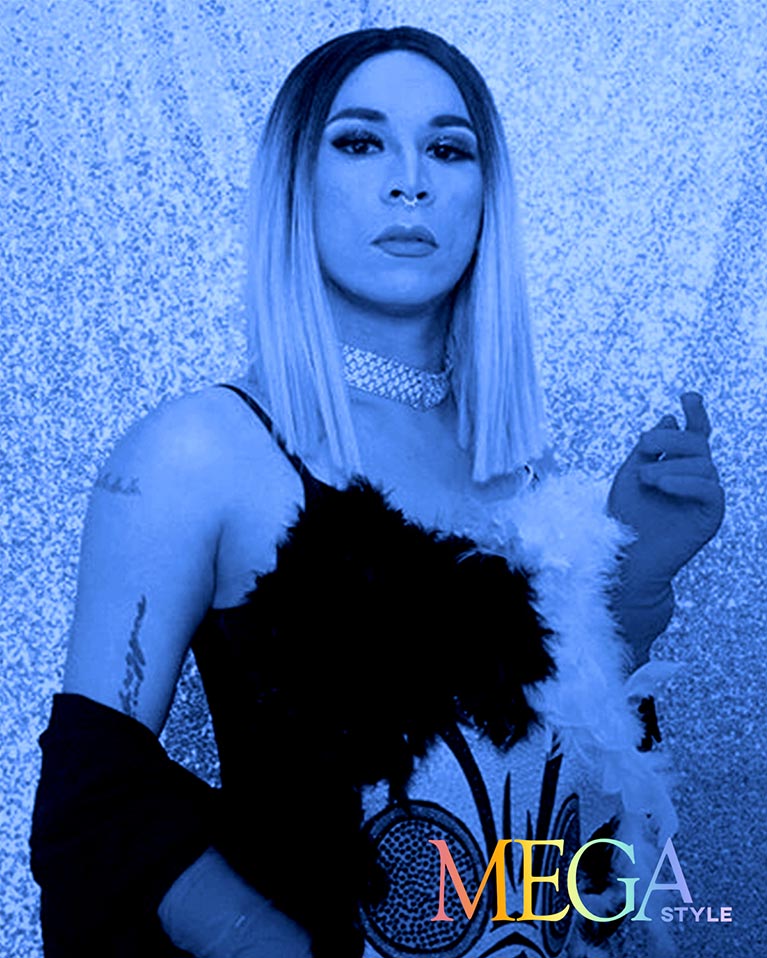
Rod Singh
If there is a story that is a common experience within the LGBTQIA+ community, it would have to center itself on awakening. And in the scope of film, it has different representations depending on the lens of the storyteller behind it all. This has continuously given the community a new resonance. Clearly, it does not end with the on and off cam queer characters who shape the silver screen into a whole modern perspective. The rainbow flag indeed waves behind the camera through award-winning film director, Rod Singh.
Rod’s eye-opener stories paved the way for a more coherent understanding of the lives of the LGBTQIA+ community. The film Mamu (and a Mother too) under Rod’s direction tells the story of a transgender sex worker in her mid-40s who eventually fosters an orphan, essentially becoming a mother, too. Mamu weighs the struggles of financing breast implants, raising a young transgender, and being a partner which leads to a different outlook and priorities. “We always talk about how a transgender becomes a woman, but we don’t talk about how they become a mother,” shares Direk Rod in his interview with Cinemanews. “I want to humanize the experience of every transgender sex worker na lumalabas sa pelikula, but at the same time, mabigay pa rin ‘yung humor because that’s really unique sa ating mga Pilipino talaga.” Making it a point to represent a transgender film well, Direk Rod casted Iyah Mina, a transwoman to portray the role. The film bagged wins and nominations at Cinema One Originals Digital film Festival, FAMAS Awards, Gawad Urian Awards, Star Awards for Movies, and Young Critics Circle. Alindanaw: Paru-parong Lipad ng Lipad, Isang Tula Para Sa Nawawala, and Bilanggays were the other films directed by Rod Singh.
He also authored a coffee table book, Anong Pangalan Mo Sa Gabi? At iba pang tanong sa LGBT along with Eric Julian Manalastas, BJ Eco, Adrienne Maguddayao, Jason Angulo, Tetay Mendoza, and Joel Acebuche to address humdrum questions to the LGBT community. And since it’s not every time they prefer to engage and feed the questioner with repetitive responses, they added a little sarcasm and wit. Since Rod Singh’s breakthrough with Mamu (And A Mother Too), more unique stories have been underway, including whispers of mainstream queer comedies inspired by the legacy of Wenn Deramas, as well as Small Talk, an online series created in the midst of the pandemic that explores the art of conversation in inter-connected stories made possible on an app. Through his creative expression, his book, films, and series are cultivating unfurled views and opinions to the audience who haven’t fully opened their eyes and ears yet.—Alinea Hernandez
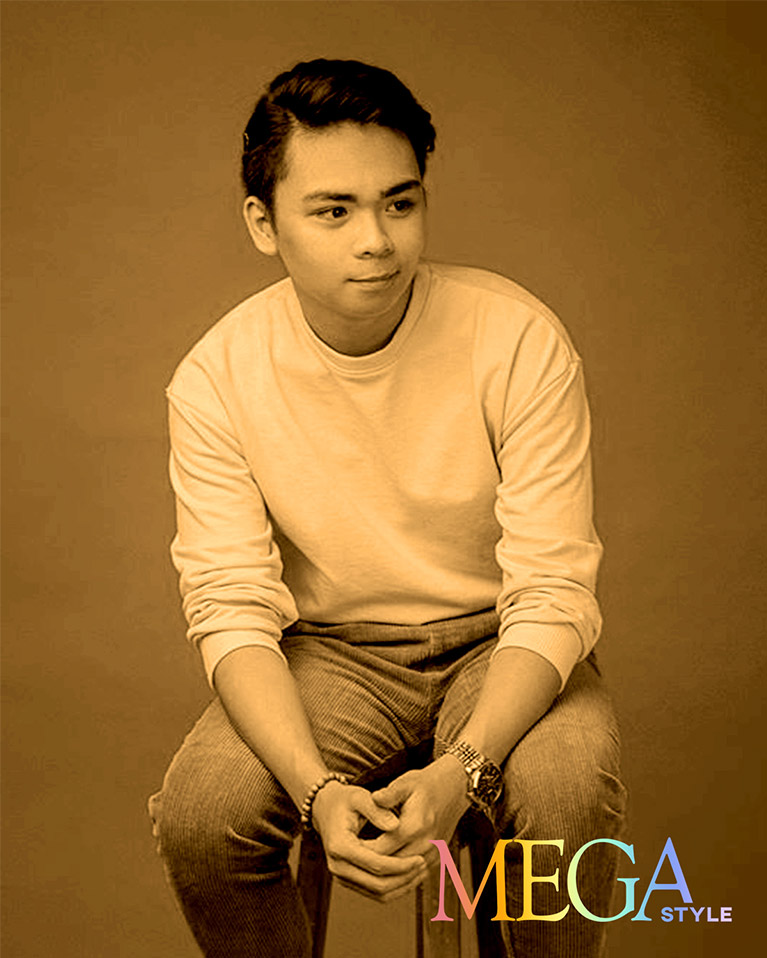
Vince Liban
Breaking the silence and standing up for his advocacy and for the entire LGBTQIA+ community, UP Babaylan’s former Punong Babaylan Vince Liban is a National Convener of The Philippine Anti-Discrimination Alliance of Youth Leaders (PANTAY), a youth network advocating for the Sexual Orientation, Gender Identity and Expression also known as the SOGIE Equality Bill in the Congress. The gender equality, sexual and reproductive health, and human rights advocate supports the SOGIE Equality bill and pushes efforts to dissolve the heterosexual patriarchy. In this undertaking, he opts for direct-action tactics in order to influence everyone to see LGBTQIA+ equally.
Currently, he holds the position of Communication and Legislative Officer at The Republic of the Philippines House of Representatives. Widening the reach of his platform, Vince goes live to voice out his advocacy, initiate conversations and conferences on SOGIE Equality Bill and gender equality. Running through his talks and project for the Pride, Vince was part of International Youth Forum (IYF): SOGIE Webinar, Mapbeks: LGBTQ+ Safe Spaces Mapping party, Walwal Sesh Pride Special Facebook Live, PLM Propaganda: Tinig at Tindig SOGIESC Forum, Ateneo’s One Big Pride, Youth Voices Count: Virtual Launch Event – The Wellbeing Webinar of LGBTIQ Adolescents and Youth, Creative Conversations Pride Special FB Live, and LPU Kalayaan’s SOGIE Talk. And, the same alliance, PANTAY which he is part also organized an online support group for LGBTQIA+ individuals—Queerantine Sessions in partnership with the Youth for Mental Health.
As the Pride march goes online for the very first time today, the PANTAY core and their Students for Equality network will come together to join the festival. Seems like Vince is not keeping his plate empty to share his advocacy. “I’ll be shooting a documentary with queer muslim filmmaker Rhadem Morados on how queer organizations and leaders are still doing advocacy work despite the pandemic,” he shares with MEGA. From the rights of transwomen to public restrooms to PLHIV discrimination, Vince can never stay unalarmed in putting an end to this stigma and harassment. For his fellow member of the LGBTQIA+ community, he will unfailingly express the rights of those who felt discriminated, separated and voiceless. Thus, the pride fight continues and it will prevail until every LGBTQIA+ member gets recognized and accepted, along with the dignity and respect that each of them rightfully deserves. —Alinea Hernandez
